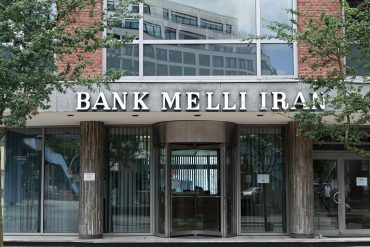What is osteoporosis?
Osteoporosis alters bone metabolism and reduces bone mass and strength. Various reasons favor the development of osteoporosis. Hereditary predisposition, lack of exercise and hormonal changes during menopause promote bone loss. According to the German Diabetes Aid, metabolic diseases such as type 1 and type 2 diabetes can also accelerate bone loss and lead to osteoporosis. But a reduced supply of certain minerals can also lead to changes and a decrease in bone mass.
More on this: Osteoporosis – 3 Nutrition Tips >>
Nutrient deficiencies may promote osteoporosis
calcium
We were drawn to this as kids: Strong bones need calcium. And rightly so – because calcium is an important building block for the maintenance and strength of our bones. If not enough calcium is absorbed from food, the body will remove calcium from the bones when there is a deficiency. In the long run, this can significantly damage the stability of bones and accordingly lead to osteoporosis. For a full supply of calcium, you should regularly consume calcium-rich foods such as milk, yogurt, cheese, green vegetables and nuts such as hazelnuts and Brazil nuts.
Good to know: Vitamin D is needed for calcium to develop its full effect. Sun vitamin is essential for absorption and incorporation into bone tissue. For this reason, a vitamin D deficiency can also have a negative effect on your bone health.
vitamin D
An insufficient supply of vitamin D can also lead to osteoporosis. The sun vitamin is responsible, among other things, for absorbing calcium from food in the intestine and depositing it in the bones. If there is a deficiency, it can impair bone mineralization and cause bone loss. Most (about 90 percent) of vitamin D is produced by the body itself. This happens through the skin, which is exposed to UV rays.
But because of the lack of sunlight, especially in the dark winter months, vitamin D levels are too low for most people. To prevent this as much as possible, you should fill up on as much vitamin D as possible in the summer. Osteoporosis patients are also advised to take supplements. Symptoms of vitamin D deficiency are high susceptibility to infection, hair loss, muscle and bone pain, bone deformities, fatigue and depressed mood.
magnesium
It is not without reason that magnesium is called a bone and muscle mineral. About 60 percent of magnesium is in our bones. If the mineral is in short supply, the body uses up depots in the bones. It is not without consequences and increases the risk of osteoporosis. For high bone density, you should pay special attention to a good supply of magnesium: foods such as legumes, brown rice, nuts, potatoes and sunflower seeds should therefore be a regular part of your diet.

Web guru. Amateur thinker. Unapologetic problem solver. Zombie expert. Hipster-friendly travel geek. Social mediaholic.




